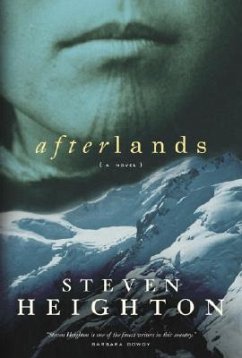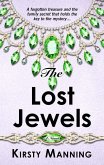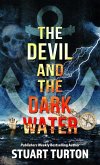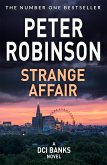A triumph of storytelling from one of Canada's most acclaimed writers -- a gripping, beautiful novel that explores the themes of human complicity in allegiance and betrayal, and the sacrifices that are demanded in order to survive. In 1871, the US government sent out an expedition to plant the American flag at the North Pole. But the voyage floundered, and half of the survivors -- nineteen in all -- were cast adrift on an ice floe off Ellesmere Island. Steven Heighton, author of The Shadow Boxer, has taken this piece of history and fashioned a novel that follows the stories of three of the participants over the six month ordeal and the shadows it casts over the rest of their lives: Roland Kruger, a rebellious German seaman, who having abandoned one nation finds another forced on him when nationalistic lines are drawn on the ice floe; American George Tyson, ranking officer among the survivors, whose attempts to keep order and desire for recognition are undermined by his insecurity and weakening faith; and Tukulito, called Hannah, an Inuit interpreter torn between the traditions of her people and the hierarchy of her adopted culture. The novel opens after the publication of Tyson's Arctic Experiences, his version of the events of the ordeal that casts himself as a hero while casting Roland Kruger as one of the villains and Hannah as an unenlightened heathen. An epic that moves between the Canadian Arctic, the United States and Mexico, Afterlands tells a tale of unrequited love and unsettled scores, and examines the ultimate cost of loyalty in an age of emerging nationalisms. "He knew what it was to be frozen and starved. Like his heroes Voltaire and Goethe he would sharewhatever food he had in his various pockets (stuffed like the cheeks of small hoarding animals) with the skeletons haunched down on the stoops of nickel lodging houses. . . . It was a wonder, many felt, that his ordeal had not made him stingy, but then maybe he'd acquired the ways of those Esquimaux, who were well known to share everything, even their wives. Urged enough, he would tell his story. In his version, Tukulito, or "Hannah," with whom he still exchanged occasional, formal letters, was the hero. Once embarked he was glad enough to tell it, their story, for much the same reason a person secretly in love will bring up the name of the other in conversation on the thinnest pretext: to invoke a closeness. Actually he was long resigned to the impossibility of his feelings, and the stoic in him, the student of Marcus Aurelius, had come to accept it with a certain grace. Loss was the world's final law. --from Afterlands
Hinweis: Dieser Artikel kann nur an eine deutsche Lieferadresse ausgeliefert werden.
Hinweis: Dieser Artikel kann nur an eine deutsche Lieferadresse ausgeliefert werden.








